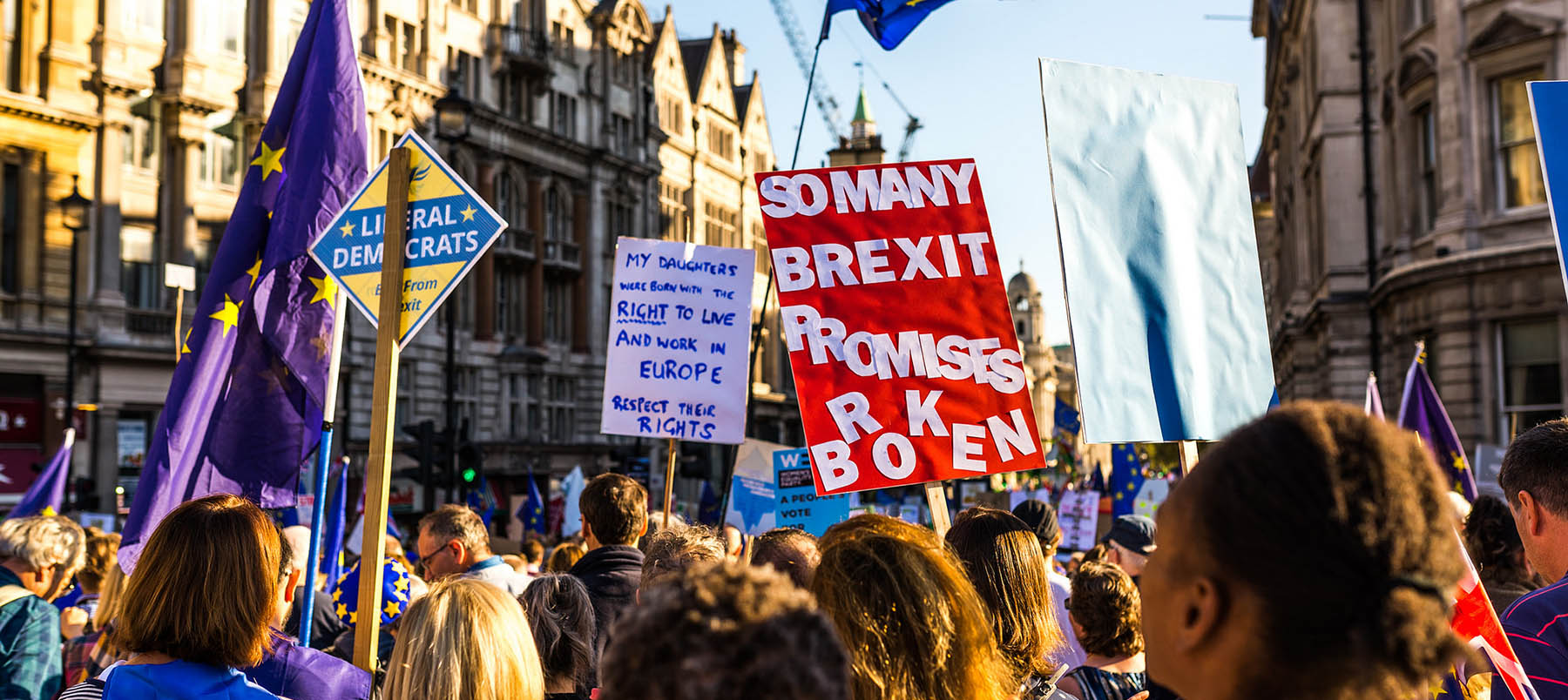
As Theresa May battles to get her Brexit deal through parliament, the debate around whether the public should get to vote on the final deal continues. In this blog, Professor John Denham, former Labour Cabinet Minister and Director of the Centre for English Identity and Politics at the University of Winchester discusses the implications of a prospective second referendum. He explains why the campaign for a People's Vote has ignored England and, as a result, risks further division.
The People’s Vote campaign is clearly stalling. There are few signs that enough MPs will throw their weight behind a second referendum, nor, despite the chaotic negotiations, have many voters changed their minds. This must be perplexing campaigners at People’s Vote HQ, but problem lies in their own cloth-eared strategy.
The great paradox of Brexit is that it was made in England, but no one is talking to the English. The bulk of Leave support was from English identifying voters. Whether you felt English, or British, or how you balanced the two was a good predictor of how a voter in England vote. We might have expected those who want to reverse Brexit to be asking what the English want. Far from it. There are plenty of Remainers talking wildly about the English, but few show any signs of listening to them.
Almost to a man and a woman, Remain commentators conjure up excuses to ignore the English. They have form on this. The original Remain campaign was happy to run as ‘Scotland Stronger in Europe’ and ‘Wales Stronger in Europe’; but in England alone the message was a disastrous ‘Britain stronger in Europe’. Now the same people prefer to dismiss English concerns as a caricatured and a largely imaginary English nationalism.
Most leading Brexiteers certainly do take an Anglo-centric view of Britain. After all, only an Englishman could talk of ‘1000 years of British history’ as Boris Johnson does, yet it is a Greater Britain, not a Little England, that Johnson, Rees-Mogg, Farage and the others invoke. In reality, it is hard to find English voters who appear nostalgic for imperial glory, nor does this seem to be why they voted Leave. A moment’s reflection will show that English nationalism barely exists: it has no serious political party, no popular leaders, no public intellectuals, no cultural institutions. If a nationalist is simply someone who wants their nation’s interests to be protected, then Ruth Davidson is as much a nationalist as Nicola Sturgeon.
Recent evidence suggests a much less assertive underpinning to English discontent. Last year’s BBC/YouGov poll, supplemented by the University of Winchester Centre for English Identity and Politics, has highlighted the different world views of English and British voters. Most English residents combine both identities, but those emphasising Englishness are also likely to be more rooted in an English locality while the Brits are more cosmopolitan and European. The English are more patriotic - about Britain as well as England - while the ‘British not English’ aren’t that patriotic at all. And the English are more likely to associate their national identities with positive values.
No one thinks that governments listen to them much, but the English are least satisfied. They clearly want the same rights as Welsh, Scottish and Northern Irish voters to elect MPs to make their own laws. They look most enviously at the protection the Barnett formula gives to other nations but denies to England’s deprived regions. This strongly held, deeply rooted yet dissatisfied identity is held more widely outside the big cities and in places that have often seen the worst of economic and social change. It is the identity of a nation that is barely mentioned in public debate or government pronouncements and has no distinct national forum or institutions. The English are found, in the main, amongst the people and in the places that no one has listened to for a very long time. The attraction of Brexit was not the offer of a new British glory, or even a more clearly delineated England, but the chance to have a voice and change something.
Remainers could have understood that anxiety and promised that the future would be different. But with metropolitan disdain it was easier to dismiss the English as nationalists and regard the disruptive impact of immigration on settled communities as racism. If few voters who chose to ‘take back control’ have changed their minds it may be because they’ve heard few People’s Vote campaigners talking to them. All that is on offer is the pre-referendum status quo.
People’s Vote supporters argue with some evidence that a second referendum might be won by mobilising those who didn’t vote last time (and hoping that enough Leavers are now dead). But such a victory could only be at the expense of permanently alienating a huge swathe of the country. This would be a dangerous outcome telling a large minority of England that they have no stake in its future. For Labour to turn its back on so many of their natural and historic supporters would change the nature of the party forever. No wonder that so few MPs in Leave constituencies are enthusiastic about a second referendum.
In the short term, the ‘Norway option’ looks the only route that complies with the terms of the referendum but avoids catastrophic economic damage. In the longer term, the growing call for deliberative, consultative constitutional assemblies, most recently from Gordon Brown, offers the best hope to allow English interests to be aired at last.
(Photo credit: Ed Everett on Flickr - https://www.flickr.com/photos/edeverett/44745978474/)
Press Office | +44 (0) 1962 827678 | press@winchester.ac.uk | www.twitter.com/_UoWNews
Back to media centre